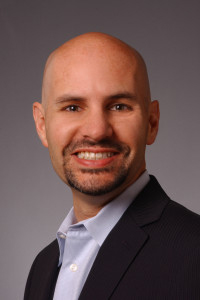Researchers will use smartphone app to improve alcohol treatment

Researchers from UNT Health Science Center and the University of Oklahoma Health Sciences Center (OUHSC) have been awarded a two-year, $650,000 National Institutes of Health (NIH) grant to develop and test a novel smartphone-based alcohol treatment for homeless adults.
Scott Walters, PhD, Professor and Chair of Health Behavior and Health Systems at the UNTHSC School of Public Health, and Michael Businelle, PhD, OUHSC Associate Professor of Family and Preventive Medicine and Director of the Stephenson Cancer Center’s mHealth Shared Resource, report that approximately 33 percent of homeless adults in the U.S. have an alcohol use disorder, a level eight times greater than the general population.
As such, they experience shorter life expectancy, higher healthcare utilization and costs, increased rates of illness and greater risk of interpersonal violence.
“Alcohol treatment is common in homeless shelters, but compliance is typically very poor,” Dr. Walters said. “If we knew what things were leading people to drink and drop out of treatment, we could use that information to develop better quality interventions for this underserved population.”
The project will be the first to combine geolocation, self-reported psychosocial variables, such as stress and urge to drink, and objectively measured alcohol use to identify real-time events that lead people to drink.
“Alcohol use is strongly affected by triggers,” Dr. Walters said. “For instance, emotions, the surrounding environment and social setting. We’re using smartphones to pinpoint moments when a person is at increased risk for relapse or heavy drinking and identify which combinations of stressors are especially problematic. This information can then be used to intervene during risky moments to reduce the chances of drinking.”

The project has three phases.
First, smartphone-based surveys and passive sensing will be used to collect data.
Second, this data will be used to create a risk algorithm and tailored treatment messages that anticipate and intervene to prevent alcohol use.
The final phase will test the newly developed app among homeless adults enrolled in shelter-based alcohol treatment. Self-reported alcohol use will be verified using a transdermal alcohol sensor.
“Alcohol use is almost always measured in-person, during lab or clinic visits. But people’s recall of their drinking is often inaccurate, making it difficult to understand the complicated street-level interactions that drive heavy alcohol use,” Dr. Businelle said. “Capturing moment-to-moment data will provide a better understanding of the drivers of unhealthy drinking, and this information may be used to create interventions that are tailored to the individual in real-time.”





Social media